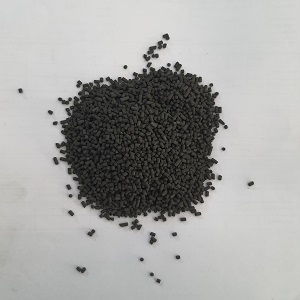Carbon Molecular Sieve
Make CarboTech
Carbon Molecular Sieve (CMS) is a type of adsorbent material that is widely used in various industrial processes, particularly in pressure swing adsorption (PSA) systems for gas separation. It's often used for the separation of nitrogen and oxygen gases from air to produce high-purity nitrogen. Here's an overview of carbon molecular sieve:
Structure and Properties:
- CMS is a porous material derived from carbonaceous sources like coal, coconut shell, or synthetic polymers.
- It consists of a network of interconnected pores with a specific size range, allowing for selective adsorption of certain gas molecules.
- The pore structure of CMS is tailored to preferentially adsorb smaller molecules like oxygen, while allowing larger molecules like nitrogen to pass through.
Gas Separation Using CMS:
- In a PSA system, compressed air is introduced into an adsorption tower containing CMS particles.
- Oxygen molecules, being smaller and more polar than nitrogen molecules, are adsorbed onto the surface of the CMS material. This selective adsorption leads to the separation of nitrogen-enriched gas that exits the tower.
- Once the CMS becomes saturated with oxygen, the tower switches to a regeneration phase where the pressure is reduced, allowing the adsorbed oxygen to desorb. This process rejuvenates the CMS for the next adsorption cycle.
Applications:
- Nitrogen Generation: The primary application of CMS is in PSA nitrogen generation systems. It's used to produce high-purity nitrogen gas for various industries, including electronics manufacturing, food packaging, and chemical processing.
- Hydrogen Purification: CMS can also be used for the purification of hydrogen gas from mixed gas streams.
- Volatile Organic Compounds (VOC) Removal: In some cases, CMS is used to adsorb volatile organic compounds from gas streams.
Advantages:
- Efficient separation of gases based on molecular size and polarity.
- Suitable for producing high-purity nitrogen from air without the need for cryogenic processes.
- Regenerable material that can undergo many adsorption and desorption cycles.
Limitations:
- Selectivity can vary based on the specific CMS material and its pore structure.
- Can be sensitive to contaminants that might affect its adsorption capacity.
Carbon molecular sieve is a crucial component in various industrial applications, particularly in the production of high-purity nitrogen gas. Its ability to selectively adsorb certain gas molecules based on their size and polarity makes it a valuable material for gas separation processes.
